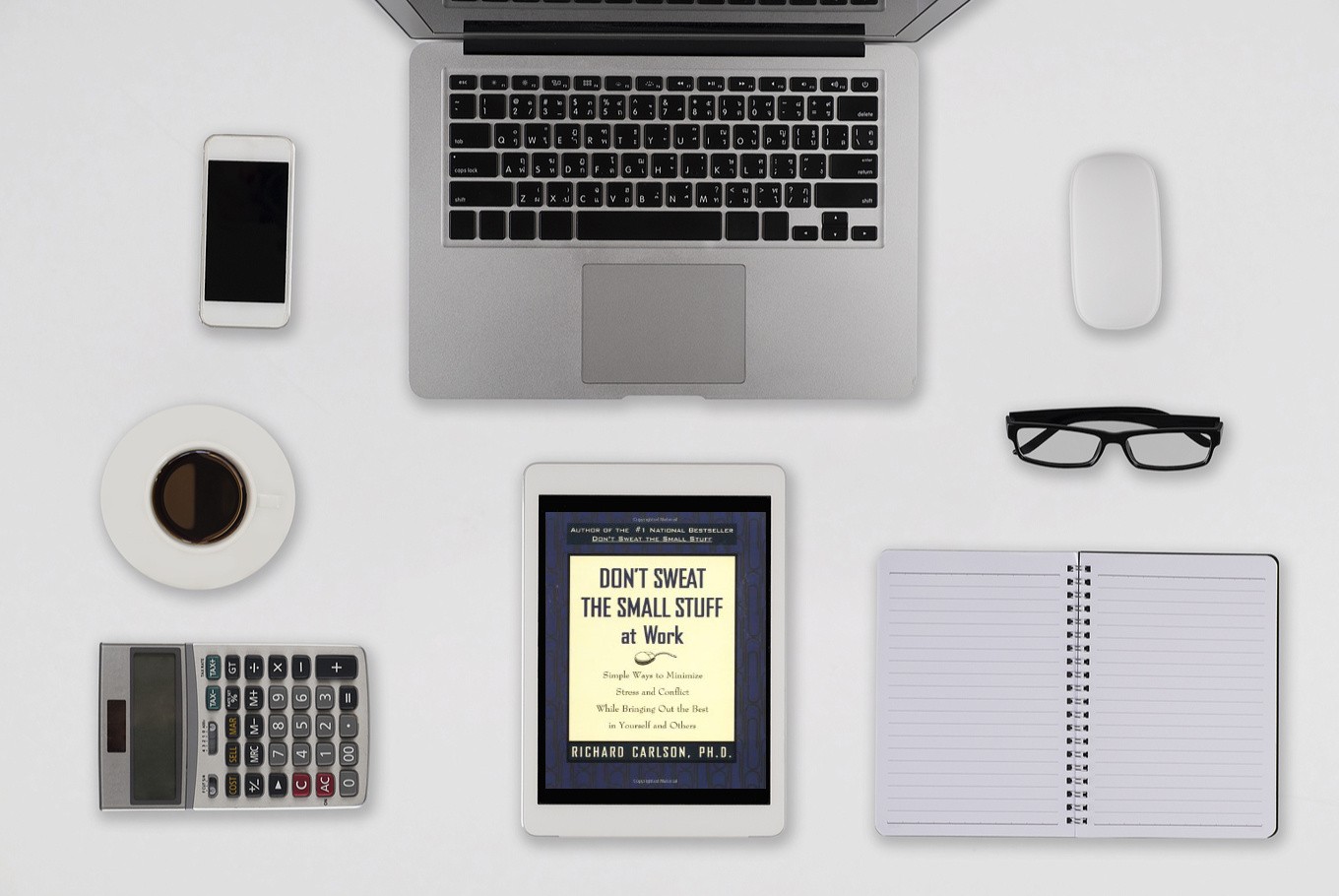Popular Reads
Top Results
Can't find what you're looking for?
View all search resultsPopular Reads
Top Results
Can't find what you're looking for?
View all search resultsFive things millenials can learn from 'Don't Sweat Small Stuff at Work'
Change text size
Gift Premium Articles
to Anyone
R
ichard Carlson's first book Don't Sweat Small Stuff brought so many benefits to my personal and professional life. How we interact with other human beings, become a good listener, how to deal with stressful situations and much more.
I recently read another great book from Richard Carlson called Don't Sweat Small Stuff at Work. This book focuses on personal development in the workplace. Just like the previous book, he wrote 100 points in this one.
Millennials have a super unique characteristic when it comes to the workplace. Most millennials tend to complain, get disappointed and leave when the workplace is not as cool as they expect.
(Read also: Traits of millennials and why they are good for your business)
This book provides us with a story that can motivate us as millennials to have a better understanding of the workplace. As I read the book, I found five important chapters.
Stop anticipating tiredness
“OMG, tomorrow is already Monday, I will need to do the presentation, monthly report and meetings”, “This week is a super busy week, I will only be able to sleep 3 hours”. We hear a lot of complaints like this coming from our colleagues or even from ourselves.
The problem with anticipating tiredness in this way, or in any way, is that it clearly reinforces the tiredness. It reverts our attention to the number of hours we are sleeping and how tired we are going to be.
We don't need to keep reminding ourselves that we are going to be super tired, that we will only have 3 hours of sleep every day. If we have a lot of things to do, list them down and do them one by one; if we are sleep deprived, take as much time as we can to sleep (is that Netflix series really that important?). With this, we are going to have a better day and a week ahead.
Light a candle instead of cursing darkness
As the title suggests, this strategy involves taking a positive, solution-oriented (however small) attitude towards improving a situation instead of complaining about what’s wrong. It means looking towards a solution rather than a reminder or reinforcement of the problem.
In my company, every Friday we have an anonymous survey. The purpose of the survey is for everyone to express what they think about the company, their complaints, opinions or an appreciation for the company. Every Friday, in the team meeting, the HR team will read the survey out loud and the top management will have to answer each one of them. Some questions include: “Why do we not have much cultural or religious celebrations?”; “Why can’t we make our office look more beautiful and more fun?”
There was an answer from one top level person, “Instead of complaining about what we are lacking, why don't you take part and volunteer to make the office more beautiful and more fun?”
If we see a problem happen in our company, instead of us cursing the situation, we should act to change it. If the office is too boring, why don't you initiate a fun activity? Stop complaining, and start taking action!
(Read also: Jobs in start-up companies most attractive for millenials)
Don’t sweat a demanding boss
The truth about demanding people is that (typically) they are demanding to everyone. In other words, it's not personal. The problem is that we think that Mr or Mrs. Demanding is "out to get me".
Instead of complaining about his or her attitude, try to steal and learn something good from them. We need to change our approach to deal with these kinds of people. We can try to open ourselves to understand what they are trying to teach us and don’t take their behavior personally.
It’s best to learn early on so that later in life when we have our own companies, we understand how to deal with our employees, our clients and also our investors.
With this skill, we will be less adversarial and defensive than we used to be. It takes time to learn, but this skill is worth it.
Remember the motto, "you catch more flies with honey"
When we are kind, loving and patient—when we are fair, good listeners, and when we genuinely care about others—our attitudes show up in everything we do. As a result, people love to be around us, share their secrets of success and want to assist you in any way they can.
It’s not hard to do—a simple act such as offering help to those who need it, saying “good morning”, offering to go out for lunch together, and be a good listener when your colleague share stories.
Ease off your ego
This one of the most interesting parts of the book, talking about our ego. The ego is the part of us that brags, exaggerates, criticizes, and judges others (as well as ourselves). The ego is very self-centered as if it needs to yell out, "Look at me!!" Because the ego is so self-preoccupied and selfish, it encourages us to lose our compassion and interest in others.
For example, when we are working on a project in a team, one person handles one section and each section has their own target. The ego will force us to say “hey, my section’s the best!”. The ego will also make us feel stressed out if we don’t perform well, from an egotistical point of view, and we don’t get the attention of others.
From now, whenever we are in our “proving mode” try to feel how much energy is invested in it. You will feel super tired because the ego drains so much and for what?!
There is a lot to be gained by easing off our ego. First, we will feel as though a huge burden has been lifted. As I said before, it takes a lot of effort and energy to be in “proving mode”. We will be more interested in other people. We will listen better, be better friends and be more generous as Ricard Carlson says in his book.
There are still 95 other chapters that Richard Carlson wrote. But, from just these five alone, we as millennials can learn so many things about life at work. Moreover, it's 2017—let’s make it one of our resolutions, shall we?
***
Andrew is a creative junkie, blogger and digital enthusiast. He has huge passion to travel around the world and interests in personal development books. He works at iPrice.
---------------
Interested to write for thejakartapost.com? We are looking for information and opinions from experts in a variety of fields or others with appropriate writing skills. The content must be original and on the following topics: lifestyle ( beauty, fashion, food ), entertainment, science & technology, health, parenting, social media, and sports. Send your piece to community@jakpost.com. For more information click here.











